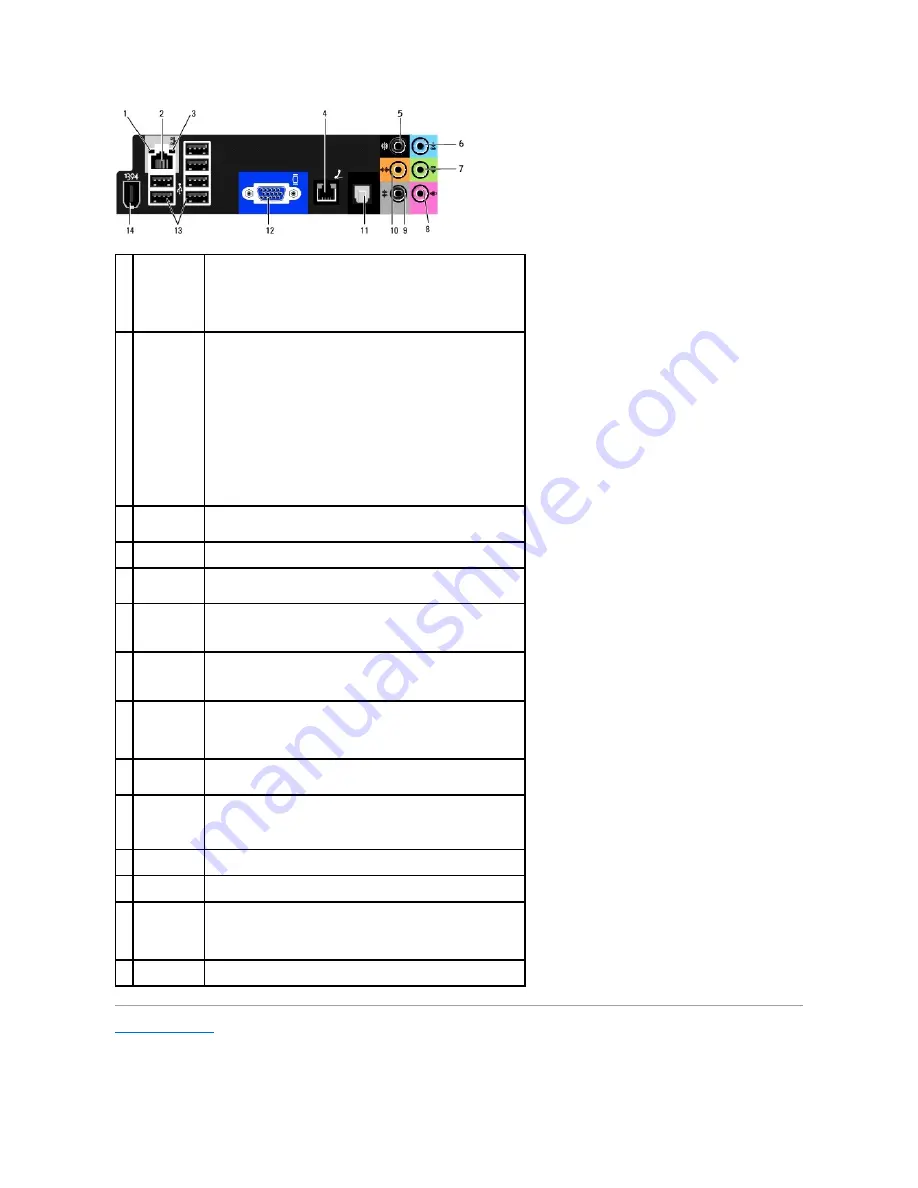
Back to Contents Page
1
link integrity
light
l
Green
—
A good connection exists between a 10-Mbps network
and the computer.
l
Orange
—
A good connection exists between a 100-Mbps
network and the computer.
l
Off
—
The computer is not detecting a physical connection to the
network.
2
network
adapter
connector
To attach your computer to a network or broadband device, connect one
end of a network cable to either a network jack or your network or
broadband device. Connect the other end of the network cable to the
network adapter connector on the back panel of your computer. A click
indicates that the network cable has been securely attached.
NOTE:
Do not plug a telephone cable into the network connector.
On computers with a network connector card, use the connector on the
card.
It is recommended that you use Category 5 wiring and connectors for
your network. If you must use Category 3 wiring, force the network
speed to 10 Mbps to ensure reliable operation.
3
network
activity light
Flashes a yellow light when the computer is transmitting or receiving
network data. A high volume of network traffic may make this light
appear to be in a steady "on" state.
4
modem
connector
Use the modem connector to connect your computer to the Internet.
5
rear surround
sound
connector
Use the black surround sound connector to attach multichannel-capable
speakers.
6
line-in
connector
Use the blue line-in connector to attach a record/playback device such
as a cassette player, CD player, or VCR.
On computers with a sound card, use the connector on the card.
7
line-out
connector
Use the green line-out connector to attach headphones and most
speakers with integrated amplifiers.
On computers with a sound card, use the connector on the card.
8
microphone
Use the pink connector to attach a personal computer microphone for
voice or musical input into a sound or telephony program.
On computers with a sound card, use the microphone connector on the
card.
9
side surround
sound
connector
Use the grey surround sound connector to attach multichannel-capable
speakers.
10 center/LFE
connector
The LFE (Low Frequency Effects) Audio channel, found in digital surround
sound audio schemes, carries only low frequency information of 80 Hz
and below. The LFE channel drives a subwoofer to provide extremely
low bass extension. Systems not using subwoofers can shunt the LFE
information to the main speakers in the surround sound setup.
11 S/PDIF
connector
This connector is used to transmit digital audio without going through
an analog audio conversion process.
12 VGA connector If your monitor has a VGA connector, plug it into the VGA connector on
the computer.
13 USB 2.0
connectors (6)
Use the back USB connectors for devices that typically remain
connected, such as printers and keyboards.
It is recommended that you use the front USB connectors for devices
that you connect occasionally, such as joysticks or cameras.
14 IEEE 1394
connector
Attach high-speed serial multimedia devices, such as digital video
cameras.
Summary of Contents for XPS 210
Page 43: ......





































